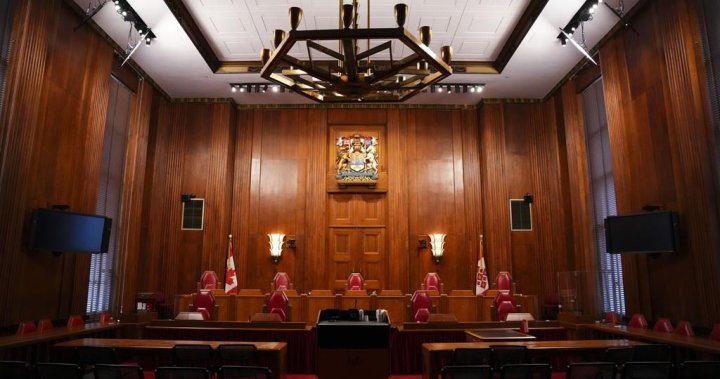Paragraph 1: Introduction to Bill 21 and its Controversy
Bill 21, Quebec’s secularism law, has ignited a fierce debate across Canada since its enactment in 2019. Officially known as "An Act respecting the laicity of the State," the law prohibits certain public sector employees, including teachers, police officers, and judges, from wearing religious symbols while performing their duties. The legislation aims to uphold the principle of state neutrality in religious matters, arguing that public servants should not display their religious affiliations while representing the state. However, critics argue that the law infringes upon fundamental rights and freedoms, particularly the freedom of religion and expression guaranteed by the Canadian Charter of Rights and Freedoms. The law’s discriminatory impact on religious minorities, particularly Muslim women who wear the hijab, has been a central point of contention, sparking widespread protests and legal challenges.
Paragraph 2: The Legal Challenges and the Quebec Court of Appeal’s Decision
Several organizations, including the National Council of Canadian Muslims, the Canadian Civil Liberties Association, and the English Montreal School Board, have mounted legal challenges against Bill 21. These challenges argued that the law violates fundamental rights protected by the Charter and that its preemptive use of the notwithstanding clause is unjustified. The notwithstanding clause allows governments to temporarily override certain Charter rights, effectively shielding legislation from judicial review. In 2024, the Quebec Court of Appeal upheld the law’s constitutionality, while acknowledging that it does infringe upon fundamental rights. The court’s decision further fueled the controversy and prompted appeals to the Supreme Court of Canada, the country’s highest court.
Paragraph 3: The Supreme Court’s Role and the Potential Implications of its Decision
The Supreme Court of Canada plays a pivotal role in interpreting the Constitution and upholding the Charter of Rights and Freedoms. Its decision on whether to hear the appeal against Bill 21 holds significant implications for the future of religious freedom and minority rights in Canada. If the court agrees to hear the case, it will delve into the complex legal arguments surrounding the law’s constitutionality, the use of the notwithstanding clause, and the balance between state neutrality and individual rights. A decision to strike down Bill 21 could significantly alter the legal landscape regarding religious expression in the public sphere, potentially setting a precedent for similar cases across the country. Conversely, upholding the law could further entrench the divide on the issue and embolden other provinces to consider similar legislation.
Paragraph 4: The Political Landscape and the Federal Government’s Position
Bill 21 has also become a significant political issue, dividing political parties and influencing public discourse. The Quebec government, led by the Coalition Avenir Québec (CAQ), has staunchly defended the law as a necessary measure to protect the secular nature of the state. They argue that it reflects the values of the majority of Quebecers and is essential for social cohesion. Conversely, the federal Liberal government has expressed its opposition to the law and has indicated its intention to intervene in support of the challenge before the Supreme Court. This stance has further complicated the intergovernmental relationship between Quebec and the federal government, adding another layer of complexity to the ongoing debate.
Paragraph 5: The Broader Societal Impact of Bill 21
Beyond the legal and political ramifications, Bill 21 has had a profound societal impact, particularly on religious minority communities. Critics argue that the law perpetuates discrimination and marginalization, particularly targeting Muslim women who wear religious head coverings. They contend that it limits their opportunities for employment in the public sector and sends a message of exclusion and intolerance. Supporters of the law, on the other hand, maintain that it promotes social harmony and ensures that the state remains neutral in matters of religion. They argue that visible religious symbols can be divisive and that the law is necessary to protect the secular values of Quebec society. The debate surrounding Bill 21 reflects a deeper societal struggle to reconcile competing values of religious freedom, state neutrality, and inclusivity.
Paragraph 6: The Future of Religious Freedom and State Secularism in Canada
The Supreme Court’s decision on Bill 21 will have far-reaching consequences for the future of religious freedom and the interpretation of state secularism in Canada. It will shape the balance between individual rights and collective values and determine the limits of governmental authority in regulating religious expression. The outcome of the legal challenge will undoubtedly influence the ongoing national conversation about religious diversity, inclusion, and the role of the state in managing religious differences. This case represents a critical juncture in Canadian history, with the potential to reshape the relationship between religion and the state for years to come. The implications extend beyond Quebec’s borders, potentially influencing policy decisions and societal attitudes across the country. The Supreme Court’s decision will not only resolve the legal dispute but also contribute to shaping the very fabric of Canadian identity and its commitment to multiculturalism.

